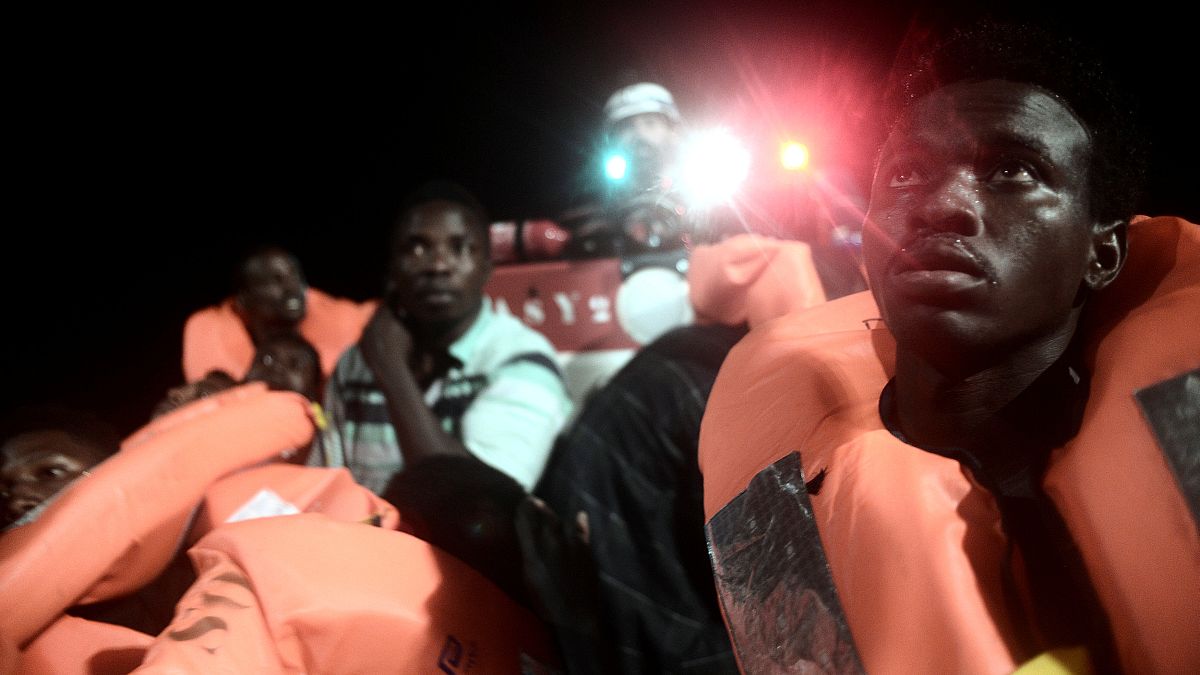"This case demonstrates the humanitarian consequences of the dysfunctional asylum policy"
Critics of Europe's migration policies see it as a symptom of a very sick system. The Aquarius rescue ship drama in the Mediterranean is a stark reminder of divisions in the EU.
More than 1.8 million migrants have turned up in Europe since 2014 - around a third of those going to Italy.
Calls from Rome to share the newcomers and the costs have largely fallen on deaf ears, fueling anti-migrant and anti-European sentiments.
Brussels is looking to reform asylum laws, but will it find a medicine that everyone wants to swallow?
Campaigners say the Aquarius stand-off highlights a desperate need to act.
Euronews' Damon Embling spoke to Catherine Woollard, Secretary-General of the European Council on Refugees and Exiles - a pan-European alliance of 95 NGOs.
Catherine Woollard: "This case demonstrates the humanitarian consequences of the dysfunctional asylum policy. At the same time, it's not the moment for political games, or macho posturing."
Euronews: "We have new governments in Italy and Spain. In Italy, it's an anti-establishment government, vowing to crack down on illegal immigration. Where do you see things going from here?"
Catherine Woollard: "This was a predictable move from Matteo Salvini, the Italian Interior Minister, who made a lot of promises on migration. Disembarkation is one of the ones that remains within his control. He may have undermined his efforts to take forward the promises however because they depend on EU cooperation such as reform of the Dublin regulation."
Euronews: "Many would say that Italy has been overwhelmed with migrants. So, isn't it fair enough when people stand up and say enough is enough?"
Catherine Woollard: "We strongly object to the racism of the current Italian government. However, Italy and Greece do have a point when they say that the current system places an unfair responsibility on them because of the current principle whereby the countries of first arrival are responsible. This also creates a perverse incentive for those countries to keep their reception conditions low and to do nothing to encourage integration."
Euronews: "The EU had wanted to share migrants out fairly across member states: that didn't really happen, did it? So, what do you think Brussels needs to do now?"
Catherine Woollard: "I am afraid we're seeing that other members are reaping what they've sewn with this case in Italy. We and others predicted this kind of anti-migration government. And it stems from the basic unfairness of the Dublin system, and this is something that has caused resentment in Italy for many years. We now need to see a deeper and fairer reform of the European asylum system."
Euronews: "You talk about those Dublin regulations and they are going to come up for discussion at a European summit later this month. What do you hope European leaders will do at that summit? What do you hope will come out of it?"
Catherine Woollard: "I think it's unlikely that we see agreement at the summit. From our side, that's not necessarily the worst case scenario because the proposals on the table don't address the fundamental flaws in Dublin. In many ways, they were the wrong proposals at the wrong time. We now need to move to the deeper reform that's needed and other measures such as opening safe and legal channels to reach protection within Europe, compliance with existing EU asylum law and insistence that all countries in Europe be countries of asylum."
